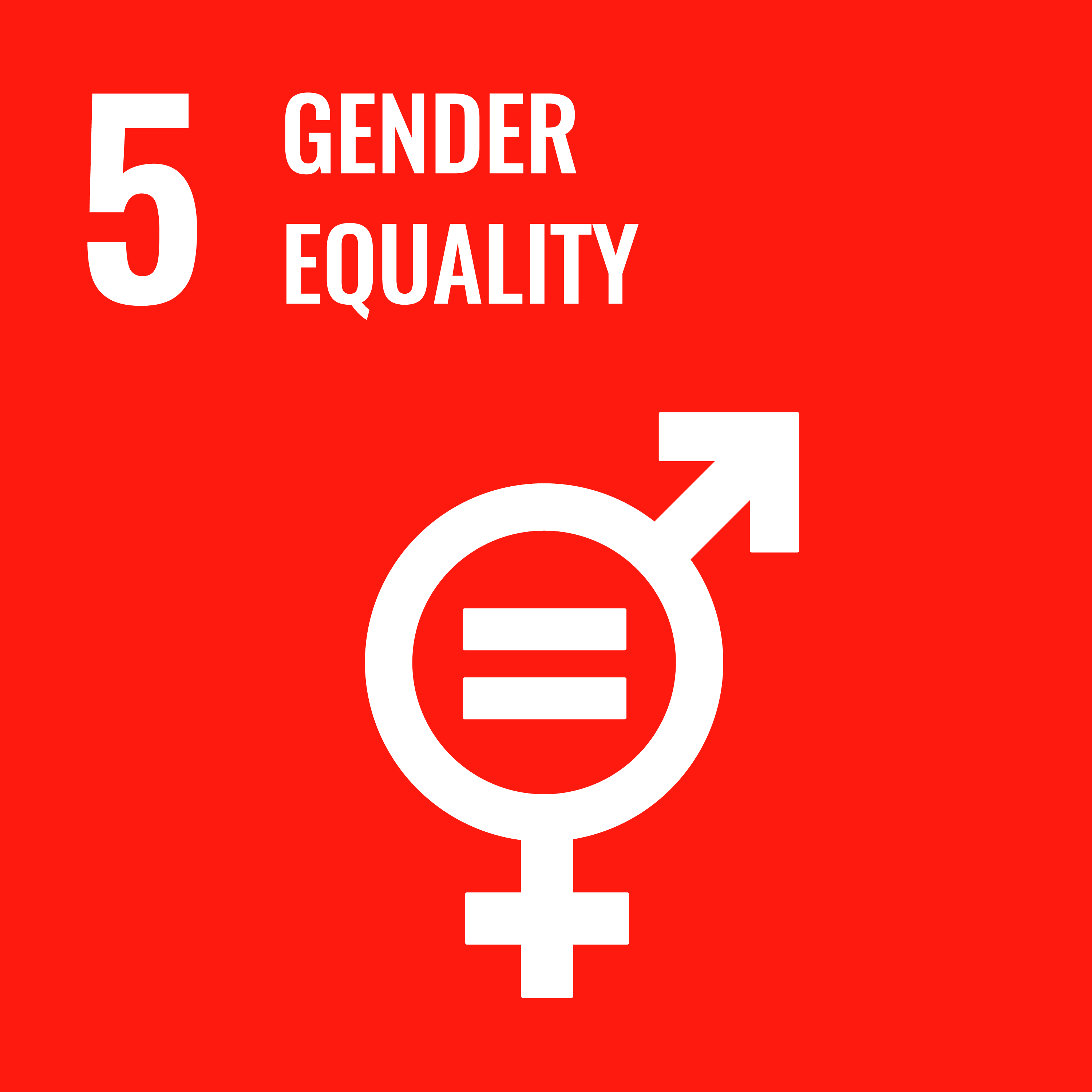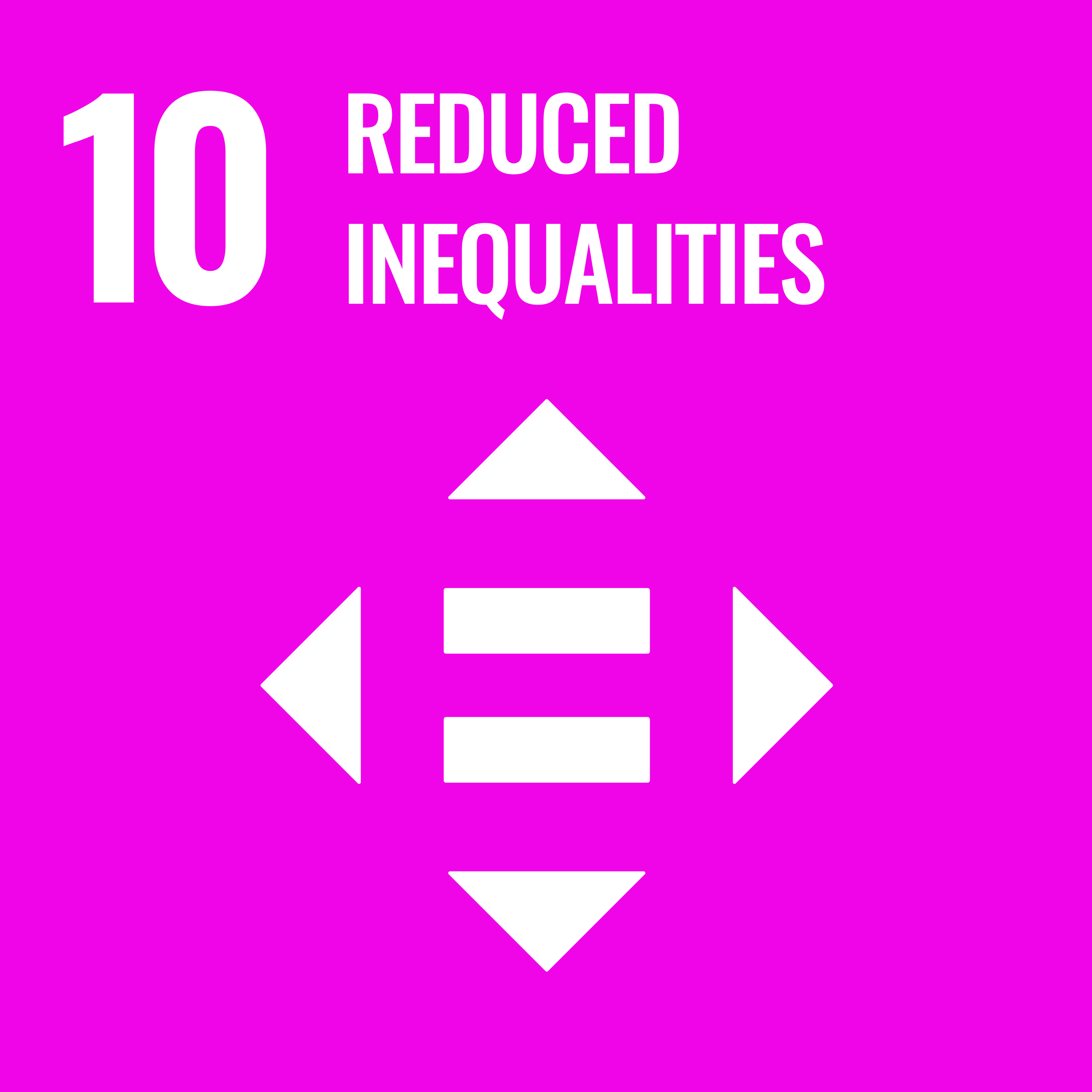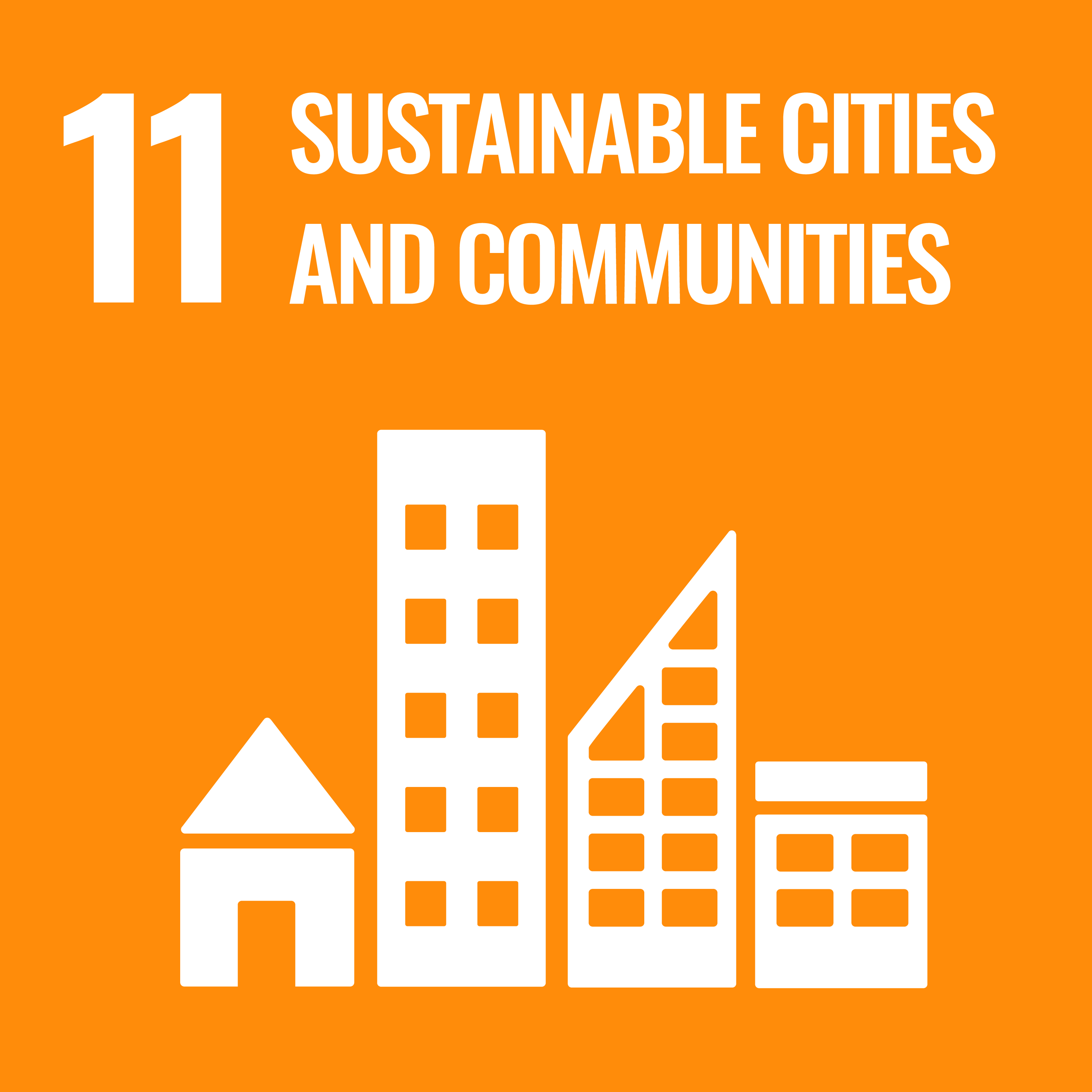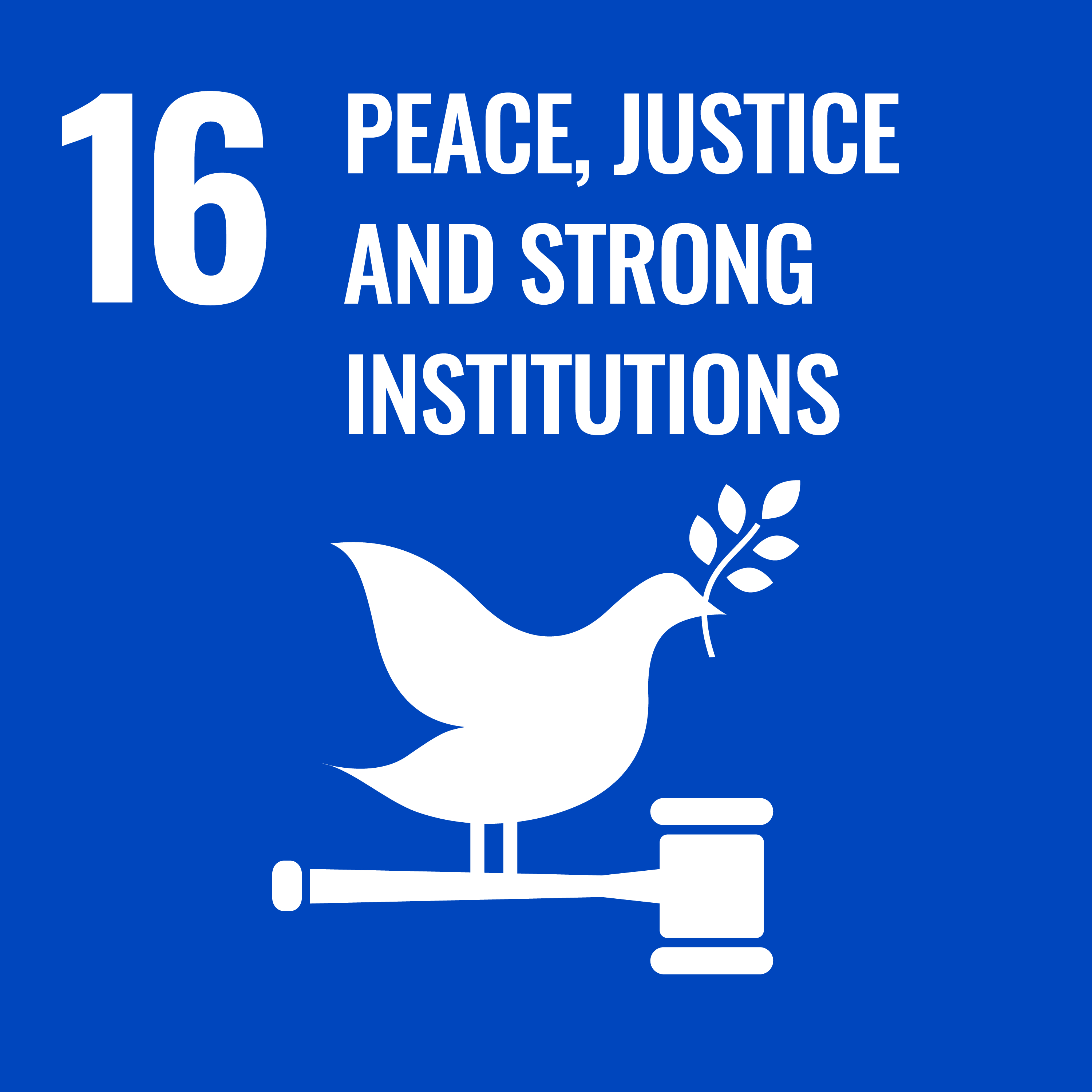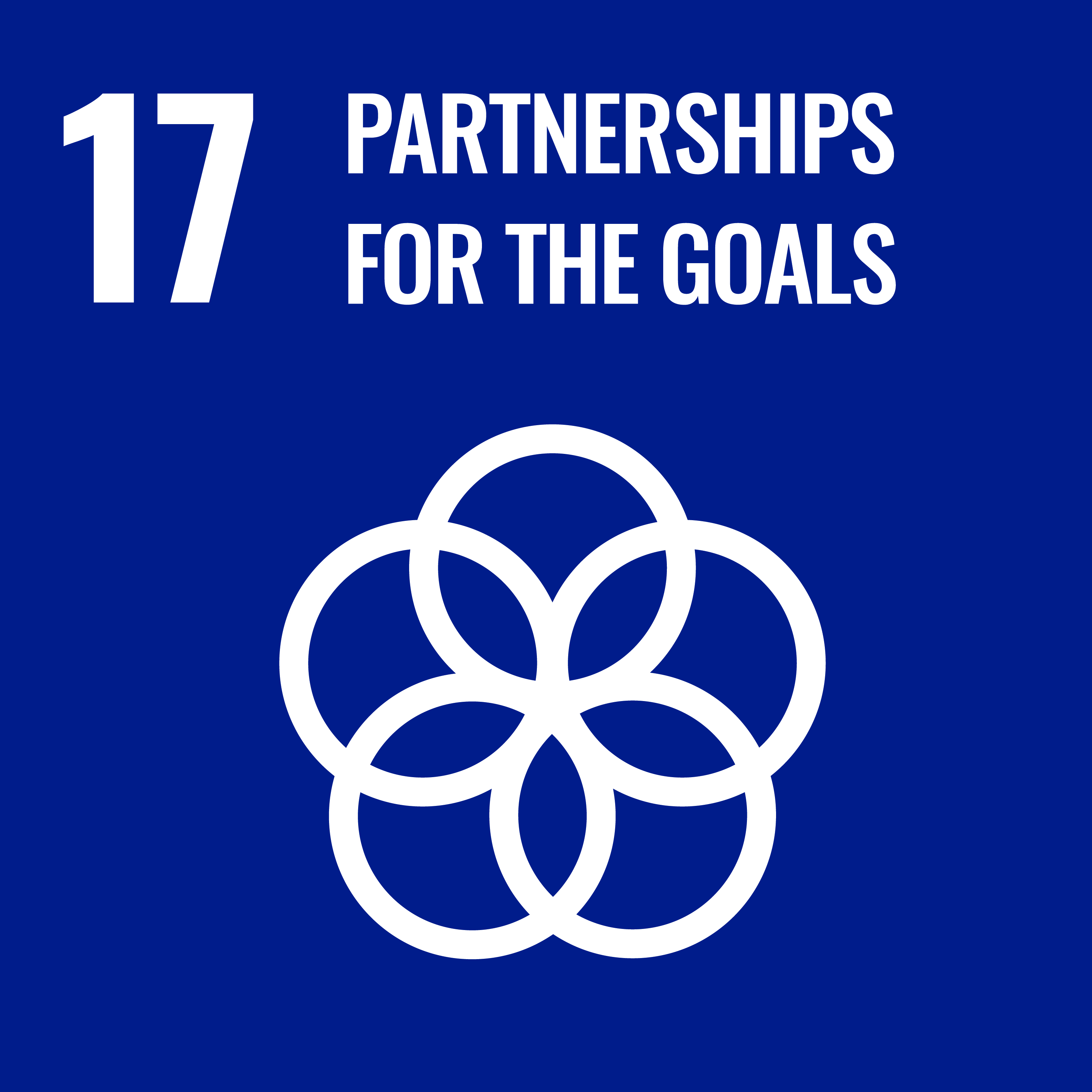Outcome 6: Production, analysis and use of gender statistics and sex-disaggregated data and knowledge
Gender statistics, sex-disaggregated data and knowledge are produced, analyzed and used to inform policy-making, advocacy and accountability for delivering gender equality and women's empowerment results.
Janette Dantas, 33, pictured seven months pregnant, is one of several women farmers in Brazil who are leading a quiet revolution by logging their produce. The simple method fights gender bias in censuses. Photo: UN Women/Lianne Milton
Contributes to achieving SDGs
Avtandil Tsereteli takes pleasure in being an active caregiver for his only son, Alexandre. Photo courtesy of Avtandil Tsereteli.
When his son was born in December 2023, 34-year-old Avtandil Tsereteli didn’t think twice about taking the paid paternity leave offered by his employer, TBC Bank, in Georgia.
“It was one of the most significant decisions I will ever make,” he says. “When you have time with your baby, it gives you such a huge pleasure that I had never experienced before, and I could not have imagined. You have to experience it to feel it. It’s one of the most beautiful experiences a parent can have.”
Tsereteli says he was encouraged by a fellow employee taking paternity leave in his department. Another father has also taken it since him.
“I don’t know any of my other friends or family who took paternity leave elsewhere,” he admits. “It’s a cultural thing. … Not a lot of companies encourage this practice, so there is a financial side. Also, many fathers don’t know they have this option, so we need education programmes.”
TBC Bank began encouraging male and female employees to take such leave after becoming a signatory of the Women’s Empowerment Principles (WEPs) in 2021 and signing a strategic partnership with UN Women Georgia in 2022. The bank began mandatory gender equality trainings for all employees in early 2023, shortly after learning about the findings of the UN Women and GEOSTAT Time-Use Survey in Georgia 2020–2021, produced under the Women Count programme and published in December 2022.
Key findings included that women in Georgia spend half as much time as men on paid work (1.8 versus 3.5 hours per day) and twice as much time as men on unpaid work (2.9 versus 1.4 hours on care, and 3.8 versus 1.7 hours on domestic work, respectively). The gap widens significantly for working parents, as women employed full-time spend 5 times more time than employed men on unpaid domestic work (2.7 versus 0.5 hours per day) and 3 times more on unpaid caregiving (0.6 versus 0.2 hours, respectively).
“We are big users of these reports,” says Maka Bochorishvili, Environmental, Social and Governance Coordinator at Georgia’s TBC Bank. “Its important to understand the granularity of the data – and the analysis. That gives you the real insight!”
She says that in 2021 and 2022, not a single male employee of TBC took paternity leave. But after TBC started communicating the TUS findings in trainings, meetings and other communications – such as their Intranet, newsletter and Facebook group – and actively encouraging employees to make use of the company’s fully-paid parental leave of up to 6 months, four men took paternity leave in 2023.
“Not all men knew they could take it,” explains Bochorishvili. “But this perception that fathers can’t care for kids is also a stereotype we are changing. … In our society, we still have a lot of traditional views. We’re happy that these perceptions are changing, but we still have a long journey ahead.”
The 2022 TUS report and other UN Women data were used by TBC to develop four mandatory staff training modules on gender equality, stereotypes, sexual violence and time poverty, as well as in-person classes that began in early 2023. More than 8,000 TBC employees take the mandatory trainings annually, and more than 2,500 of TBC’s 8,000 staff have taken these weekly 4-hour in-person trainings for 35 randomly selected staff at a time.
“We understood that we need a dialogue,” says Bochorishvili. “In our meetings and trainings, we show them how much time women spend per day or week on unpaid care, self-care, entertainment, work, etc. When people see it on the board, it’s a big surprise. … When we explain the influence of gender stereotypes and social roles, which result in time poverty, it’s often emotional for them because they realize barriers in their personal and professional lives, and their impact on their decisions to apply for certain positions.”
Tsereteli took the in-person training in October 2023, when his wife was still pregnant. He says it was informative and an important part of changing mindsets.
“Many of us are biased and it’s not easy to change,” he says, “but gradually, training and spreading information through different channels can help people understand that parental leave is their right and privilege and some of the happiest times they can spend with their baby.”
Fellow WEPs signatory Terabank also began encouraging male employees to take its 4-month fully paid paternity leave after learning about the TUS findings, with one taker so far. Terabank will launch a campaign on Father’s Day to highlight the importance of men’s involvement in childcare.
Beyond private sector uses, Georgia’s TUS findings are also being used to improve the country’s Public Service Law, with a Gender Impact Assessment (GIA) jointly published by UN Women and Georgia’s Civil Service Bureau (CSB) in 2023. A working group was established in 2024 to develop a legislative amendment package based on its findings.
“Providing fresh impetus to our efforts, the GIA is a key document that aids us in advocating for gender-related issues at the policy level,” says Teimuraz Chikhradze, Head of the CSB. “By leveraging these insights, we can ensure that our policies and strategies are inclusive, equitable and forward-thinking.”
He says CSB has already integrated GIA recommendations in its Human Rights Action Plan for 2024–2026, ensuring that its policies are informed by thorough and gender-sensitive analysis, and plans to use the findings for the upcoming Gender Equality Action Plan, and the Civil Service Development Strategy and Action Plan.
The forthcoming changes, which are expected to include non-transferable paid paternity leave for public sector employees, combined with the private sector efforts currently underway, are collectively contributing to reducing cultural impediments for fathers to spend more time caring for their children.
Tags
How Gender Data is Enabling Better Services for Gender-Based Violence Survivors – A Tale of Five Countries in East and Southern Africa
External view of the Ministry of Youth and Social Affairs in Ethiopia taken in February 2024. Photo: UN Women/Sylvia Maina
Picture this: a young woman and her three children, all under the age of five, are suddenly out in the cold after a violent quarrel with her husband. He has been violent since they got married eight years ago, but this time was different—he had threatened to kill her and the children. She was uncertain where to go, but had still fled as soon as he fell asleep. It was 2 am.
This is easily the story of many women, and even girls, in East and Southern Africa.
According to the World Bank, at least two out of every five women and girls (42 per cent) in the region experience physical or sexual violence in their lifetimes. The data finds that the effects of gender-based violence (GBV) go beyond the survivors to negatively impact families and communities, even spanning generations.
UN Women data shows that Sub-Saharan Africa has the highest prevalence of child marriage globally, with 32 per cent of women who are married or in union having married before the age of 18. Despite most countries in the region have adopting laws prohibiting and criminalizing GBV and putting in place various related services, East and Southern Africa continues to experience high rates of GBV; one in every three girls and women between the ages of 15 and 49 years and one in every four girls and women aged 15 to 24 years has experienced intimate partner violence (IPV). The highest rates of female genital mutilation (FGM) worldwide are in this region, with approximately 90 per cent of girls and women in Somalia, Djibouti, Sudan, and Eritrea undergoing this harmful practice.
GBV gaps in criminal law persist, and law enforcement and access to justice remain a challenge. GBV in emergency contexts, such as Sudan, is a major concern, and femicide is also a growing issue in some countries, such as Kenya, where official data shows that 45 per cent of girls and women aged 15 to 49 have experienced physical violence. Data shows that the main perpetrators of physical violence against women in Kenya are their husbands or intimate partners, and that social tolerance for violence against women persists, with 42 per cent of women and 36 per cent of men believing that a man can be justified for beating his wife under certain circumstances.
While daunting, interestingly, these numbers have also become a symbol of hope where decision-makers, including policy and lawmakers, use the data to ensure that GBV survivors get the assistance that they so desperately need. By using data to better understand the type and extent of GBV, where it is taking place, and who the perpetrators are, some East and Southern African countries have designed and improved the services available to survivors, helping them to access timely and effective help.
In Rwanda and Tanzania, GBV data has informed the establishment of as one-stop centres, where survivors can not only seek shelter but also easily access medical, legal, and psychological services. Aptly named Isange (meaning, “feel at home”), One-Stop Centres in Rwanda, the centres are operational in all 44 districts. In many instances, the Isange One-Stop Centres are embedded in public hospitals.
“Some Isanges also serve as safehouses for survivors whose lives are in danger,” said Rebecca Asiimwe, Director of Gender Mainstreaming at the Gender Monitoring Office (GMO) in Rwanda.
“In cases of intimate partner violence or other forms of domestic violence, it is often unsafe for the survivor to go back home after seeking help at the Isange. Some centres provide space for survivors to spend a few days as RIB progresses with the case,” said Asiimwe.
Tanzania has established police gender and children’s desks as well as one-stop centres, most notably in Zanzibar, where every district has a gender desk and a one-stop centre comprising counselling, health services and legal aid. Gender data released every month and published in the mainstream media is helping to inform the allocation of resources, most notably security manpower to hotspots, based on emerging patterns shown in the data.
Where data from monthly GBV data releases from the Office of the Chief Government Statistician (OCGS) shows an uptick in incidences, security and other services provide additional support in those communities with surge services for the identified hotspots.
Data has also helped to inform a motion in Parliament advocating for more resources for the police to combat GBV. It has also been instrumental in engaging the private sector to contribute resources such as motorcycles for regular patrols and support for the construction of additional police posts to boost security at the grassroots level.
Gender data on GBV has also informed specialized training for police in Tanzania and triggered the establishment of police gender desks for confidential reporting of GBV cases. This has helped to ensure that survivors have a safe space where they can be received sensitively as they report incidents in their quest for justice.
This is important as UN Women data shows that some legal systems consider fewer GBV types than others, and some omit to link or only vaguely link the types of GBV to criminal offences, thereby denying survivors and victims much-needed justice.
“Since about 2021, there has been a notable increase in the amount and variety of gender data that is available,” said Inspector Said at Zanzibar Police Headquarters’ Statistics Unit.
“The partnership between OCGS and UN Women has contributed to this increase and also helped members of the Police Service to have a broader understanding of GBV,” said Said.
“OCGS monthly media releases and increased survivor reporting as a result of greater community awareness contributed to the decision to set up a special court for women and children in 2021,” said Said.
“This special court is supporting the speedy resolution of cases and helping survivors to access quick and easy justice without the inconvenience of long, drawn-out cases, especially where there is a spike in cases,” explained Said.
Rwanda’s Isange Centres serve as GBV reporting sites as they work closely with the Rwanda Investigation Bureau (RIB) to handle cases of GBV. Representatives from the agency attend to survivors alongside a counsellor and medico-legal personnel and compile and submit the survivor’s dossier for prosecution and the pursuit of justice. Data from the National Institute of Statistics in Rwanda (NISR) helped to inform the establishment of these centres, which include safehouses that provide emergency shelter to survivors − a feature that was also informed by gender data. According to 2021 NISR data, 41.5 per cent of ever-partnered girls and women aged 15 to 49 years have suffered physical and/or sexual violence at the hands of an intimate partner at least once in their lifetime.
In Uganda, the pressing need for timely and effective access to services for GBV survivors is evident. Official data from 2021 shows that more than half (55.5 per cent) of girls and women aged 15 to 59 years have experienced physical and/or intimate partner violence (IPV) at least once in their lifetime. Findings from the National Violence Against Women and Girls Survey by the Uganda Bureau of Statistics (UBOS), with support from UN Women and the Stockholm Institute, have helped to strengthen collaboration between the Judiciary and police services. The Survey found that 95 per cent of Ugandan women had experienced physical and/or sexual violence; the then Gender State Minister said that GBV had led to at least 168 deaths during the previous year.
Uganda has a spatial data portal that brings together all administrative data (data from hospitals, police, and court records, among others) on GBV, further enhancing understanding of the patterns for the provision of timely and effective services to survivors. The portal includes sections on household and facility listings and is guiding the appreciation for and use of statistics in the Uganda Police Force, and boosting how the police regard and respond to GBV cases, for example, cases of rape versus defilement. Special courts have been established to expedite the hearing and conclusion of GBV cases, thus improving access to justice for survivors.
Kenya has not been left behind; a recent case study of Kisumu County and neighbouring counties found that health information system data and citizen data from grassroots organizations, such as the Nyalenda Young Turks, Women Concern Centre (WCC) and state agencies such as the National Gender and Equality Commission (NGEC), influenced the development of the Kisumu County Sexual and Gender-based Violence (SGBV) Policy to strategically combat SGBV. The Policy paved the way for the establishment of the Kisumu County SGBV Court in 2023−the third in the country. Gender data has identified Kisumu County as a GBV hotspot alongside Mombasa and Siaya counties. The first specialized SGBV court in the country is in Shanzu in Mombasa County, followed by Busia County’s SGBV Court, and then Kisumu’s SGBV Court, enhancing the administration of and access to justice for survivors. Kenya is one of 13 countries out of 16 in East and Southern Africa that have specialized GBV courts.
“The policies are evidence-based, which has made them extremely relevant to the various contexts as well as timely,” said Joel Okumu, Assistant Director at the State Department for Gender and Affirmative Action and based in the Kisumu County office.
Several other countries have used gender data to develop comprehensive policies that enhance the prevention of and response to GBV, and, more specifically, violence against women, who have been identified as the main victims of GBV by a large proportion. The Homa Bay County SGBV Policy (2023) uses monthly prevalence cases of SGBV data from the Police Gender Desk, Kenya Demographic Health Services (KDHS) data, and 2020 data from the National Crime Research Centre (NCRC), while the Siaya County GBV Policy, also based on evidence from various gender data sources, preceded the establishment of the Siaya County SGBV Court in June 2023. The Busia County Policy on GBV is hinged on the county’s commitments to the Generation Equality Forum (GEF), which is convened by UN Women.
“In Busia, for example, cases of teen pregnancy are very high, and a majority are the result of incest. Efforts to address this form of GBV here thus emphasizes household-level interventions as this is the level at which the violations are taking place,” said Okumu.
In Ethiopia, collaboration between the Ministry of Women and Social Affairs (MoWSA), UN Women, and the Ethiopia Statistics Service (ESS, formerly Central Statistics Agency, CSA) on the latest (2024) Ethiopia Demographic Health Survey (EDHS), resulted in the development of a standalone module on domestic violence (GBV) in the Survey. This data, which is currently being collected and analyzed, will be instrumental in preventing and addressing GBV through advocacy, programming, decision-making and policy-making.
Already, similar available data has been used to update and amend the National Women’s Policy of Ethiopia (1993), which has been reviewed by the Ministry of Planning and Development (MoPD) and the Council of Ministers in preparation for approval. This is a much-anticipated development as, according to EDHS 2016, at least one out of every three women in Ethiopia has been beaten, coerced into sex, or otherwise abused in her lifetime by an intimate partner. Reporting rates are low, as 2 out of 3 (or 66 per cent) of women and girls do not report this violence.
The amended Ethiopia Women’s Policy will pave the way for improved services for GBV survivors, among other gender equality and women's empowerment (GEWE) measures, and guide the allocation of resources for initiatives such as sensitization to help prevent GBV and information and advocacy to encourage reporting of these cases.
This is in line with the very welcome shift in the understanding, culture and practice of handling all forms of GBV in the region, underpinned by gender data.
UN Women and UNODC launch a pioneering study on the statistical framework for femicide in Mongolia
Acting State Secretary of the Ministry of Justice and Home Affairs of Mongolia welcomed the initiative, highlighting the timeliness of the pilot study. Photo: Courtesy of Coordination Council for Crime Prevention of Mongolia
Opening the event, Eunkoo Lee, Research and Data Specialist at the Centre stated, “This pilot study will lay the groundwork for Mongolia and the region to spearhead efforts in improving data collection on femicide, facilitating a more thorough analysis of its root causes and drivers and enabling the development of tailored prevention policies.”
Welcoming the initiative, Ms. Nyamgerel, Acting State Secretary of the Ministry of Justice and Home Affairs of Mongolia stated, “It is with great pleasure and deep pride that we spearhead this initiative alongside UN Women and UNODC. This underscores our unwavering commitment to combatting violence against women in our country and enhancing data aggregation to accurately gauge the scope of gender-related killings of women and girls.”
A statistical framework developed to address data gap on femicide
Femicide is the most brutal and extreme manifestation of violence against women and girls. Defined as an intentional killing with a gender-related motivation, femicide may be driven by stereotyped gender roles, discrimination towards women and girls, unequal power relations between women and men, or harmful social norms.
According to a report jointly published by UN Women and UNODC in 2023, approximately 48,800 women and girls lost their lives at the hands of intimate partners or other family members in 2022. On average, more than 133 women or girls are killed every day by someone in their own family.
However, these numbers do not represent the true magnitude of femicide as the true scale of it may be much higher. Estimating the precise number of femicides is challenging and data gaps persist. The absence of a common definition and internationally comparable data contribute to this challenge.
To address this data collection challenge, the UN Statistical Commission in its 53rd session in March 2022, endorsed the Statistical Framework for Measuring the Gender-related Killing of Women and Girls, jointly developed by UNODC and UN Women. The Framework prompts countries to collect information on the specific context in which gender-related killings of women and girls occur, to determine the gender motivation of the killing.
Mongolia is the first country in the Asia-Pacific region to pilot the statistical framework. It currently collects data on gender-related crimes such as murder resulting from domestic violence, and homicide data disaggregated by sex. However, due to the lack of institutional coordination and a unified database for homicide cases, as in other countries, identifying femicide related data remains challenging.
During the workshop, the National Police Agency, State General Prosecutor’s Office, Judicial General Council, and National Statistical Office made presentations on their roles, responsibilities, and practices in collecting and recording the data related to violence against women and homicide.
The National Police Agency emphasized the need to enhance coordination among law enforcement agencies through database sharing and developing statistical capacities of the officials.
Through the pilot study, UN Women will focus on mapping the institutions responsible for data collection on homicide in Mongolia, while assessing data availability and comparability concerning the Statistical Framework that identifies the various criteria for classifying a killing of a woman or girl as femicide. Additionally, the Centre will scrutinize prevailing challenges, proposing viable solutions related to both the statistical framework and the collection of disaggregating variables.
The same pilot study will be implemented in Fiji, in parallel. The Centre will continue to support countries in the region to improve data collection and analysis of gender related killings of women and girls, contributing to forging evidence-based prevention policy.
Tags
Cross-regional knowledge exchange on academia’s contribution to advancing gender equality and women’s empowerment in the Arab States
On 21 and 22 June, UN Women Tunisia Country Office in partnership with the University of Sousse Higher Institute of Commercial Studies, convened the second International Conference on Gender Studies. This year’s theme “Gender, Innovation and Local Development” highlighted the vital role of innovative approaches in promoting gender equality and women’s empowerment, and accelerate local development efforts to implement Agenda 2030 and the Sustainable Development Goals.
To promote cross-regional dialogue, academic representatives from Bahrain and Kuwait shared their countries’ experiences in leveraging gender equality and women’s empowerment as a catalyst for local development.
Insights from Kuwait:
Professor Lubna Al-Kazi, Director the Women’s Research and Studies Centre at Kuwait University, discussed Kuwait’s advancements in the area of women’s economic empowerment. She highlighted the importance of multi-stakeholder partnerships, noting the collaborative efforts of UN Women, UN Development Programme (UNDP), the General Secretariat of the Supreme Council for Planning and Development, and the Kuwait University Women’s Research and Studies Centre since 2017.
“Kuwaiti women’s participation in the labour force has increased to 57.9% - the highest level in the Gulf Cooperation Council”, Professor Al-Kazi said. “Women’s leadership rate has increased from 15% in 2017 to 21% in 2024.” She also highlighted the commitment of 45 Kuwaiti private sector Chief Executive Officers to the UN Women – UN Global Compact Women’s Empowerment Principles. Additionally, eight leading private sector entities joined forces to establish the Kuwait Women’s Economic Empowerment Platform to work collaboratively on enhancing women’s participation and leadership in the private sector, supported by the Kuwait University Women’s Research and Studies Centre, GSSCPD, UN Women, UNDP, and the Women Mentor Forum.
Insights from Bahrain:
Dr. Christelle Comair, Head of the Women’s Research Centre of the Royal University for Women in Bahrain, outlined the Forum’s focus on priority areas for gender quality research. "When considering women’s advancement, we must look at three key levels: institutional frameworks, governance, and legal reforms. Bahrain has made significant strides in these areas and is setting a precedent in terms of policies and initiatives to accelerate women's empowerment”. Dr. Comair noted that “integrating women’s needs into innovation and development strategies is crucial, as is fostering collaborative projects between public, private, and academic institutions. Local development is the entry point for all these initiatives."
Speaking to the importance of measuring progress, and the role of academia in multi-stakeholder efforts for gender equality and women’s empowerment, Dr. Comair highlighted that a "critical aspect is the production of data about women and the monitoring of progress through specific indicators. Efforts have been made in this direction, and it is now time to fast-track these efforts through innovative methodologies that focus on women’s needs and build the capacity of researchers to conduct women’s studies."
Tags
UN Women convened different spaces for exchange where "Gender Equality: Commitments and Challenges" was addressed, with a focus on the electoral results in Uruguay. One of these was with civil society organizations and another with actors from the diplomatic corps in Uruguay, in which Pablo Ruiz Hiebra, United Nations Resident Coordinator in Uruguay, and María Noel Vaeza, UN Women Regional Director for the Americas and the Caribbean, participated, who underlined the role of international cooperation and the need for parity democracy.
The dialogue began with opening remarks by Pablo Ruiz Hiebra, United Nations Resident Coordinator in Uruguay, who highlighted the organization's commitment to advancing gender equality in the country.
Next, María Noel Vaeza, UN Women Regional Director for the Americas and the Caribbean, presented an overview of global and regional efforts, based on the report Progress in Meeting the Sustainable Development Goals: Gender Overview 2024. She highlighted the key indicators and findings of the report, emphasizing the importance of all countries addressing care-related issues. In addition, he recalled that 2025 marks the 30th anniversary of the adoption of the Beijing Declaration and Platform for Action, adopted during the Fourth World Conference on Women in 1995, stressing the need to continue working towards a parity democracy.
The presentation by Magdalena Furtado, Director of Programmes at UN Women Uruguay, offered an analysis of the panorama of women politicians after the national elections, highlighting both the progress and the challenges in women's political participation in Uruguay. of the landscape of women politicians after the national elections, highlighting both progress and challenges in women's political participation in Uruguay.
Then, Anabela Aldaz, Economic Empowerment Specialist at UN Women in Uruguay, presented the UnStereotype Alliance, a key initiative to promote communication free of stereotypes. He also highlighted the expansion of the Argentina chapter with the creation of a binational chapter between Argentina and Uruguay starting in 2025.
The day continued with a speech by Carina de los Santos, coordinator of the Elsie Project, who detailed the work for the integration of the gender perspective in peace and security interventions, promoting the deployment of women as part of the United Nations Peace Corps.
Finally, it culminated with an exchange with the attendees, key actors in international cooperation, where new strategies to advance the gender equality agenda were discussed.


